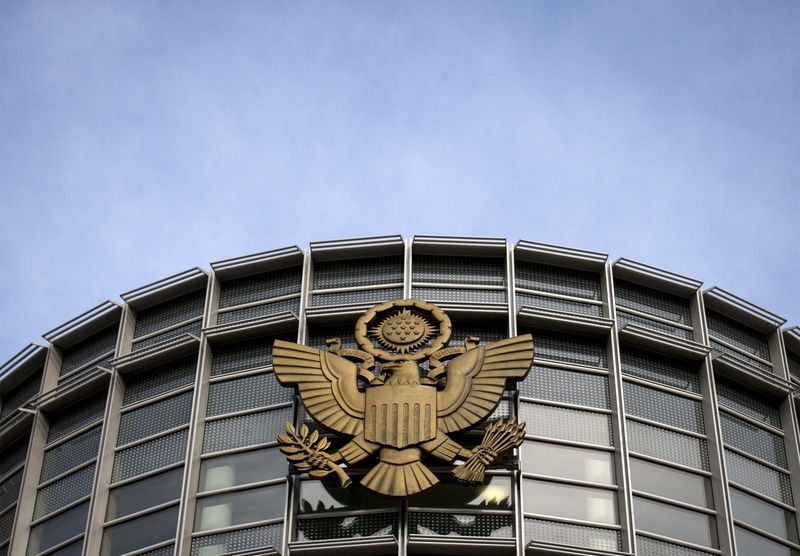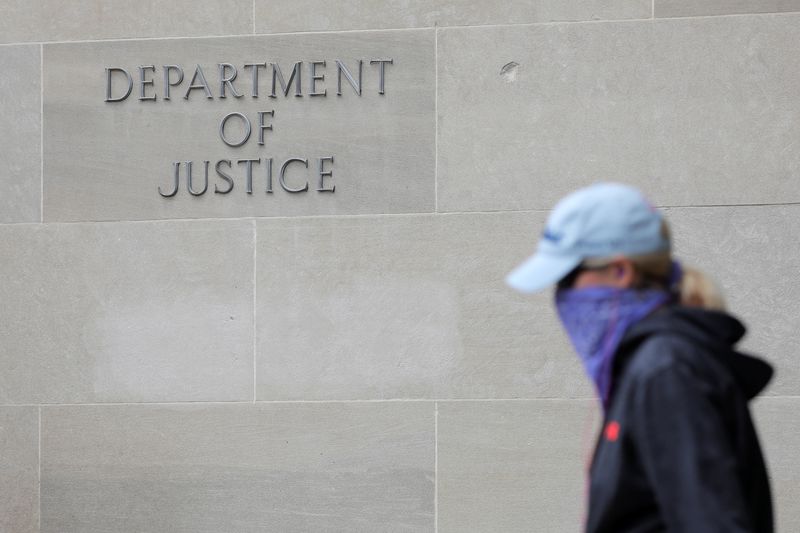By Sarah N. Lynch and Costas Pitas
(Reuters) - U.S. Attorney General Merrick Garland said on Wednesday the Justice Department supports congressional legislation aimed at boosting protections for federal judges, as jurists face mounting threats and intimidation.
Garland, the top U.S. law enforcement official, offered support for a bill that won final congressional approval on Tuesday that would bolster security for the nine Supreme Court justices and a second bill that remains stalled on Capitol Hill aimed at increasing security and privacy of all federal judges and their families.
"The Justice Department takes extraordinarily seriously any violence, criminal threats of violence, intimidation (or) harassment of the justices or any government officials," Garland said during a news conference. "We swiftly moved to provide 24/7 protection for the justices, including of their residences."
The White House has said President Joe Biden will sign into law the measure passed by lawmakers providing more security for Supreme Court justices.
Protesters have demonstrated outside the homes of some of the justices since the leak of a draft opinion last month indicating they are poised to overturn a landmark 1973 ruling that legalized abortion nationwide. A California man carrying a handgun, ammunition, a crow bar and pepper spray was arrested outside the Maryland home of Justice Brett Kavanaugh on June 8 and charged with attempted murder.
The second bill was prompted by an attack last year by a gunman who killed the son of New Jersey-based U.S. District Judge Esther Salas. Garland said he has met with Salas and U.S. Circuit Court Judge Richard Sullivan, who chairs a security policy-making committee for the U.S. federal judiciary.

In that meeting, Garland said, he "pledged our full support as well as our support for the legislation that they're seeking." Garland said the Justice Department is also "extremely supportive" of the Supreme Court security legislation passed by Congress.
The U.S. Marshals Service said judges were subjected to 4,511 threats and inappropriate communications in 2021.
